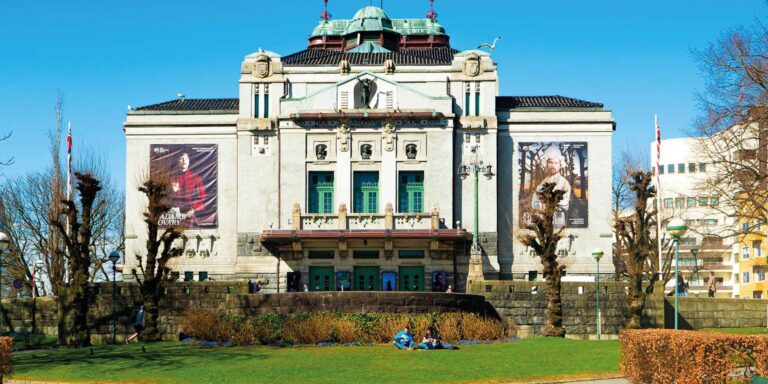In the heart of Bergen, Norway, lies a cultural treasure trove, an group that stands as a testomony to the wealthy historical past of Norwegian theater: Den nationale scene (DNS). Established in 1850, DNS has been a bastion of Norwegian drama, retaining and promoting the nation’s cultural identification thru the artwork of theater. As one of the oldest and maximum esteemed theater groups in Norway, DNS has played a pivotal role in shaping the united states’s theatrical landscape and fostering a experience of national pride via its performances.
A Historical Journey
The history of Den nationale scene is deeply intertwined with the cultural evolution of Norway. Founded by Edvard Grieg, the famend composer, and Ole Bull, the legendary violinist, DNS was mounted with the challenge of selling Norwegian language and way of life thru theater. In its early years, DNS confronted severa demanding situations, such as monetary struggles and linguistic controversies. However, via resilience and backbone, the theater endured, emerging as a symbol of Norwegian cultural resilience.
Cultural Renaissance
Throughout its illustrious records, Den nationale scene has been at the forefront of Norway’s cultural renaissance, nurturing and showcasing the skills of playwrights, actors, and administrators. From Henrik Ibsen to Bjørnstjerne Bjørnson, Den nationale scene has been a stage for some of Norway’s maximum celebrated literary figures, bringing their works to life and captivating audiences with undying memories of affection, loss, and redemption.
Championing Diversity
In addition to keeping Norwegian classics, Den nationale scene has also been a champion of diversity and inclusion, embracing works from a numerous array of cultures and views. Through collaborations with worldwide playwrights and administrators, Den nationale scene has enriched its repertoire, imparting audiences a worldwide attitude whilst staying authentic to its Norwegian roots. This dedication to variety has no longer simplest broadened the horizons of Norwegian theater but also fostered more cultural change and understanding.
Community Engagement
Beyond its performances on degree, Den nationale scene is deeply engaged with the area people, offering academic packages, workshops, and outreach initiatives to inspire the following era of theater enthusiasts. Through partnerships with schools and community groups, DNS seeks to make theater accessible to all, ensuring that everybody has the opportunity to experience the transformative electricity of the acting arts.
Adapting to Change
In the face of evolving societal norms and technological improvements, Den nationale scene has verified incredible adaptability, embracing new types of expression whilst staying genuine to its creative historical past. From experimental productions to immersive reports, DNS continues to push the bounds of conventional theater, exploring progressive methods to engage and captivate audiences within the digital age.
Preserving the Legacy
As Den nationale scene looks to the destiny, it stays steadfast in its commitment to preserving Norway’s cultural legacy and promoting the humanities as a critical issue of national identification. Through its enduring willpower to excellence and innovation, DNS guarantees that the spirit of Norwegian theater will preserve to thrive for generations to come, inspiring audiences each at domestic and abroad with its powerful storytelling and inventive brilliance.
Cultural Heritage and Identity
Den nationale scene holds a special vicinity inside the hearts of Norwegians, serving as a image of countrywide pleasure and team spirit. The theater’s repertoire displays the range of Norwegian tradition, encompassing the entirety from classic works by means of Henrik Ibsen and Bjørnstjerne Bjørnson to present day productions exploring urgent social troubles.
Through its performances, Den nationale scene now not only entertains audiences but also stimulates dialogue and mirrored image. It serves as a discussion board for exploring the complexities of Norwegian identity, grappling with questions of tradition, modernity, and the ever-evolving nature of countrywide identification.
Conclusion
In a hastily converting international, Den nationale scene serves as a beacon of cultural historical past, reminding us of the significance of preserving our shared traditions and values. From its humble beginnings to its modern reputation as a cultural icon, DNS stands as a testomony to the iconic energy of the arts to unite, encourage, and enhance our lives. As we have a good time the legacy of Den nationale scene, let us reaffirm our commitment to assisting the arts and nurturing the innovative spirit that defines us as a society.

